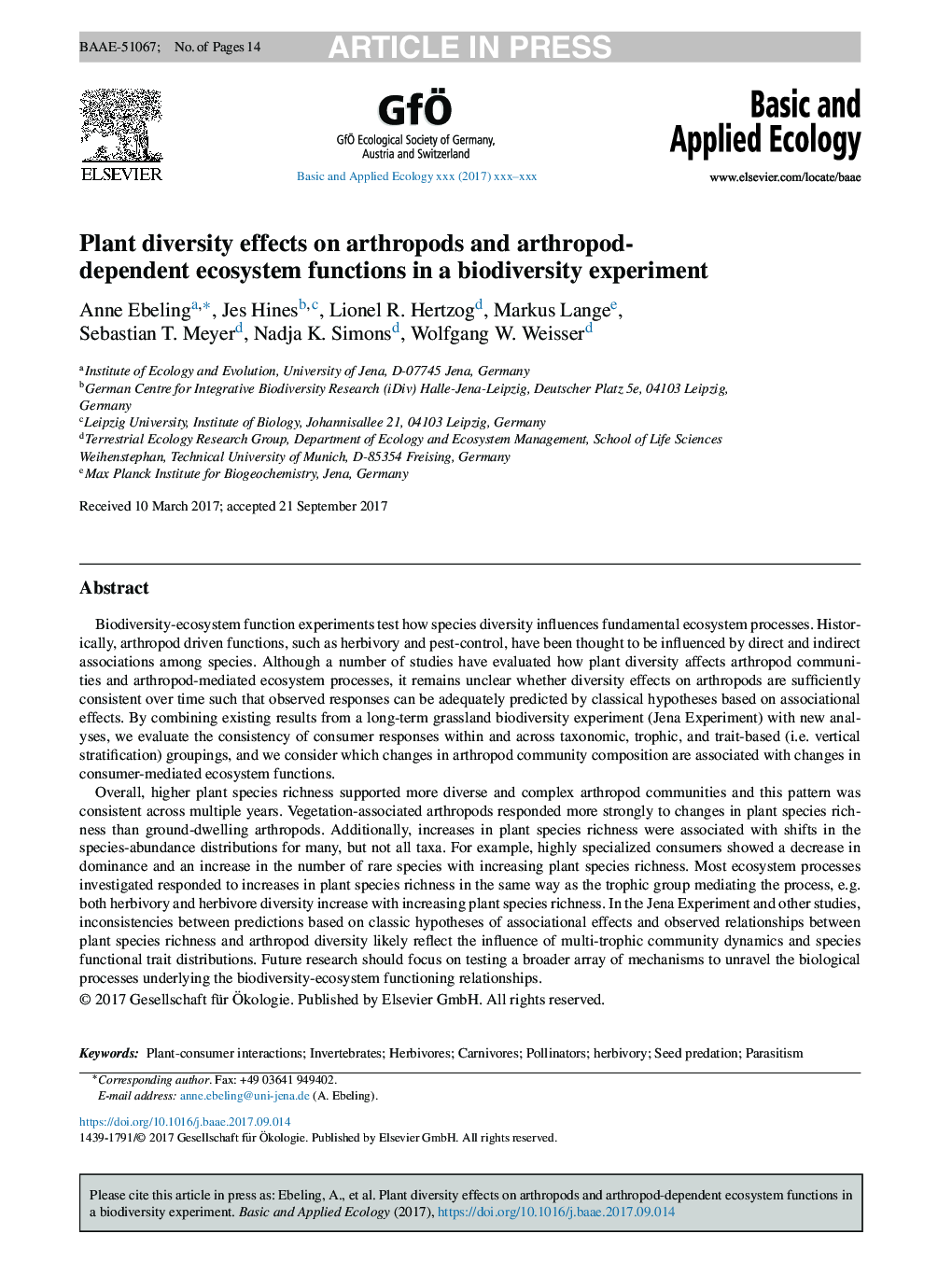| Article ID | Journal | Published Year | Pages | File Type |
|---|---|---|---|---|
| 8847041 | Basic and Applied Ecology | 2018 | 14 Pages |
Abstract
Overall, higher plant species richness supported more diverse and complex arthropod communities and this pattern was consistent across multiple years. Vegetation-associated arthropods responded more strongly to changes in plant species richness than ground-dwelling arthropods. Additionally, increases in plant species richness were associated with shifts in the species-abundance distributions for many, but not all taxa. For example, highly specialized consumers showed a decrease in dominance and an increase in the number of rare species with increasing plant species richness. Most ecosystem processes investigated responded to increases in plant species richness in the same way as the trophic group mediating the process, e.g. both herbivory and herbivore diversity increase with increasing plant species richness. In the Jena Experiment and other studies, inconsistencies between predictions based on classic hypotheses of associational effects and observed relationships between plant species richness and arthropod diversity likely reflect the influence of multi-trophic community dynamics and species functional trait distributions. Future research should focus on testing a broader array of mechanisms to unravel the biological processes underlying the biodiversity-ecosystem functioning relationships.
Related Topics
Life Sciences
Agricultural and Biological Sciences
Animal Science and Zoology
Authors
Anne Ebeling, Jes Hines, Lionel R. Hertzog, Markus Lange, Sebastian T. Meyer, Nadja K. Simons, Wolfgang W. Weisser,
